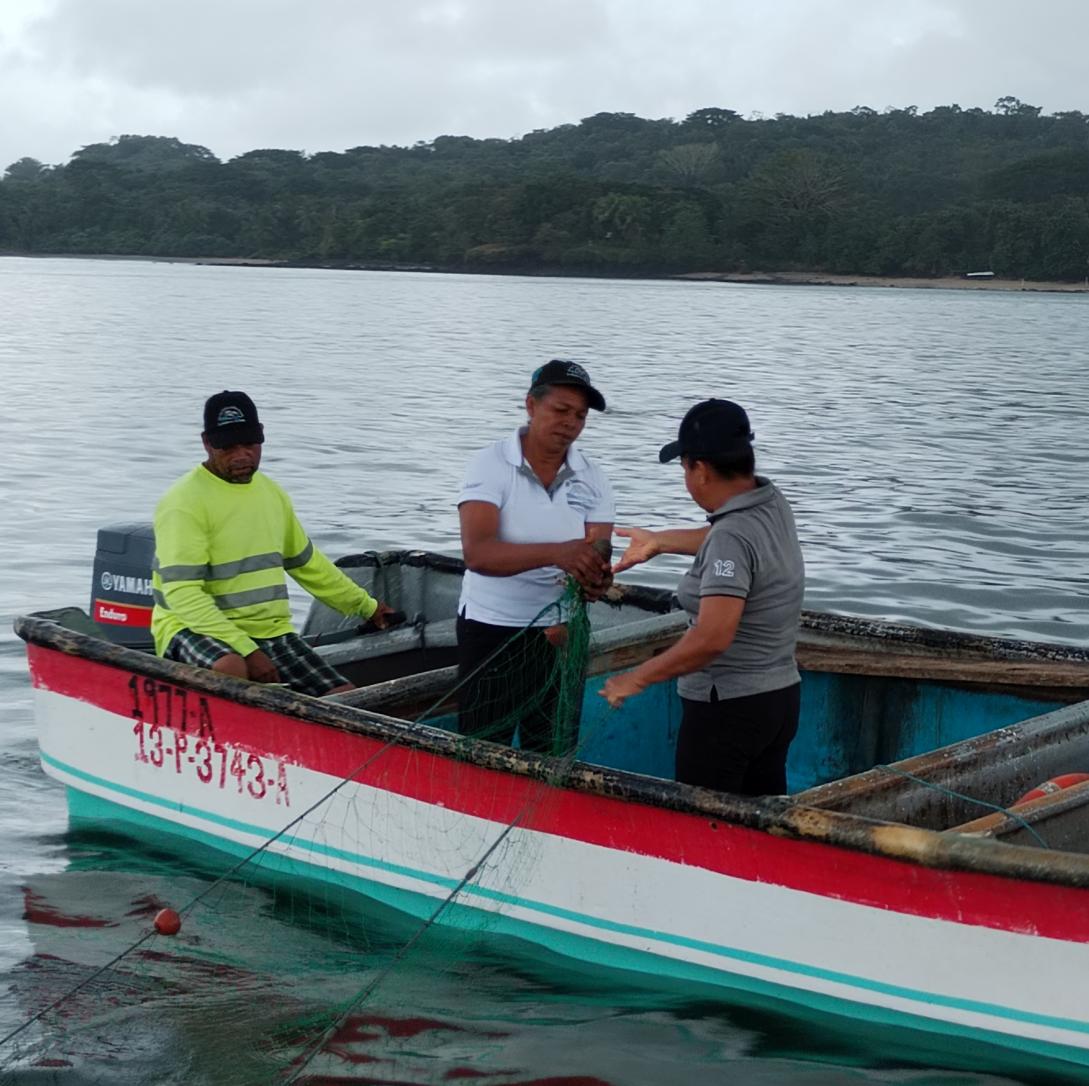Responsible artisanal fisheries and public participation for marine conservation and sustainable development in Panama

General objective:
Strengthen the technical, management, articulation and coordination capacities of fishing civil society organisations (CSOs) promoting their informed, inclusive and constructive participation in the implementation and monitoring of public policy actions for marine and social sustainability in the Greater Gulf of Chiriqui.
Specific objectives:
- Consolidate the Federation of Artisanal Fishermen of the Area of Influence of Coiba National Park (PNC) FEPACOIBA as the regional representative of the artisanal fishing sector in the area of influence of the PNC.
- Strengthen the adoption of good fishing practices and responsible consumption for the protection and sustainable use of the marine and coastal ecosystem in the area of influence of the PNC.
- Build federative capacity for the advocacy of community CSOs in the sustainable management of marine and coastal areas in the NCP's zone of influence.
- Facilitate knowledge dissemination and management.
Total cost: 686.023 EUR
EU contribution: 550.000 EUR
Financing instrument: Grant (Thematic programme call LOT 1: Civil Society Organisations)
Duration: January 2024 - January 2027 (36 months)
Executing entity: MarViva Foundation
Beneficiary area: Greater Gulf of Chiriquí, Panama
Results (expected):
- Empowered FEPACOIBA and 12 CSO partners to represent and support the interests of community actors engaged in artisanal fisheries in the Greater Gulf of Chiriquí.
- Empowered FEPACOIBA and 12 CSO partners to develop their productive activity protecting the sustainability of marine and coastal ecosystems in the framework of responsible fishing value chains under principles of environmental and social responsibility.
- Empowered FEPACOIBA and 12 CSO partners to influence governance and public policy management to contribute to the sustainability of marine and coastal ecosystems and livelihoods in coastal communities in Panama.
- Informed multi-sectoral stakeholders at the national and international level to facilitate dissemination and replicability of project results.
Target audiences/beneficiaries:
Target audiences: artisanal fisheries sector (12 CSOs, 1 regional community-based federation dedicated to artisanal fisheries, 10 artisanal fisheries community associations affiliated to FEPACOIBA, 2 new community associations, which will be formed by currently independent fishermen).
Direct beneficiaries:
- 190 artisanal fishermen (37 % women) members of 10 community CSOs affiliated to FEPACOIBA.
- 150 families dependent on artisanal fisheries represented by FEPACOIBA (approx. 600 people)
- 135 independent fishermen
- 40 families of artisanal fishermen organised in 2 new community CSOs
- 20 coastal communities
Indirect beneficiaries: tourism microentrepreneurs, families dependent on rural community-based tourism, more than 50 coastal communities, fishing sector, tourism sector, designated officials in Marine Protected Areas, public authorities, Panamanian citizens, international community of donors and cooperation agencies, CSOs, marine and coastal ecosystem.





